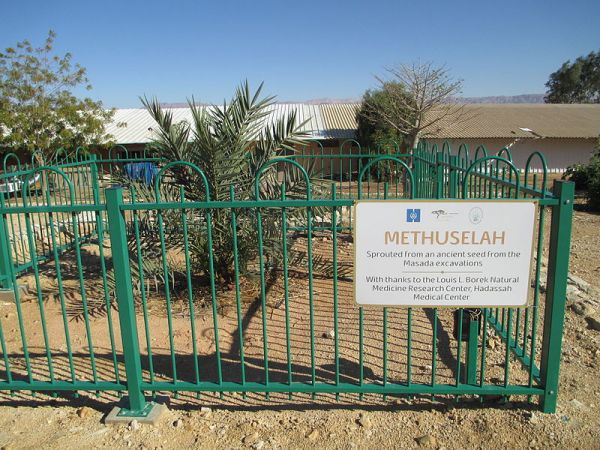The
Judean date palm tree thrived in Israel and was mentioned in the Bible
quite a few times. But thousands of years of war destroyed the date palm
groves and the palm became extinct by 500 CE. We tend to believe that
when a species goes extinct, it is never coming back. But that belief
doesn’t take into account
how long seeds can remain dormant and stay viable.
During
excavations at the site of Herod the Great's palace in Israel in the
early 1960's, archeologists unearthed a small stockpile of seeds stowed
in a clay jar dating back 2,000 years. For the next four decades, the
ancient seeds were kept in a drawer at Tel Aviv's Bar-Ilan University.
But then, in 2005, botanical researcher Elaine Solowey decided to plant
one and see what, if anything, would sprout.
"I assumed the food in the seed would be no good after all that time. How could it be?" said Solowey. She was soon proven wrong.
The
resulting tree is named Methuselah. Ten years later, it is not only
thriving, it has produced pollen, which has been used to germinate seeds
on a wild date palm. Read more about
the ancient tree growing in Israel at Treehugger.


No comments:
Post a Comment